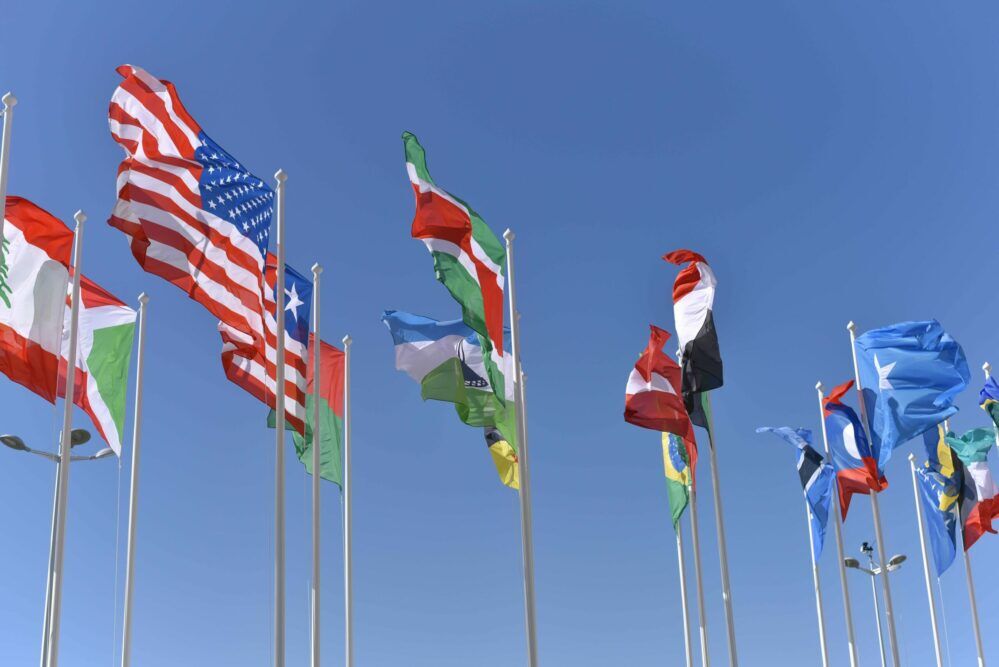Nowadays, communication, connection, and trade are a nation’s greatest assets. The need for effective diplomatic relationships between nations is always necessary. That’s why we have ambassadors. But, what is an ambassador, what is their role, and what do they do?
Whether you’re an aspiring ambassador or just interested in knowing more about this career, our article will provide a guide in which you will learn more about what exactly an ambassador is as well as the steps to becoming one.
Additionally, you’ll also learn that different diplomatic representatives have different functions.
Categories of Diplomatic Representatives
Diplomats are a nation’s representatives and they reside in other foreign countries. They are accredited and then deployed by their own country, performing the act of diplomacy. An ambassador is usually a high-rank diplomatic agent, who is accredited to a foreign country as the resident representative of his country, government, or sovereign. According to the Vienna Convention on diplomatic relations, Article 14, diplomatic representatives are divided into three classifications. Check below:
Ambassadors and other heads of missions
In simple words, an ambassador is the head of mission or the person charged for diplomatic representation by a country. An ambassador’s most important jobs are to represent the interests of their country, manage an embassy and keep their home country updated about any developments.
Additionally, heads of mission are divided into three categories, but we’ll go into more detail about each one in a minute:
- Ambassadors
- Envoys
- Charges d’affaires
Envoys extraordinary and ministers plenipotentiary
An envoy is a diplomat with plenipotentiary powers who represents the government. Think of the envoy extraordinary and minister plenipotentiary as a lower rank than an ambassador – a minister. A diplomatic mission by an envoy is called a legation.
Chargés d’affaires
Now there’s an even lower rank than an envoy and that’s a charge d’affaires. This person temporarily replaces the ambassador while he or she is away. A charge d’affaires operates in a foreign country and acts as the head of a small diplomatic mission.
What Is an Ambassador?
An ambassador is not just a title. This role comes with many responsibilities. Being able to represent your country in the best possible way in a foreign country is a difficult task but someone has to do it. We like to consider ambassadors as a link between the country they represent and the country that accredits them.
Ambassadors’ goal is to establish good relations between two countries and at the same time represent the interests of their country. It takes skills to handle two countries and report any economic or political developments in the country they’re staying in.
As a representative, ambassadors can also help in the development of foreign policy in order to protect their country’s interests within another country. They also have to meet and host other foreign diplomats at the embassy.
Another great thing about ambassadors is that they help people from their home country and evacuate refugees in cases of high-risk situations. Above everything else, ambassadors do their duties diplomatically while also keeping a productive relationship between their home country and the host nation.
Steps to Becoming an Ambassador
If you have come this far, you must have realized that ambassadors don’t have it easy. It can be challenging to become an ambassador because you need a degree, experience, skills, and you also have to take an exam. All of these qualifications mean you need to have strong communication skills in speaking, planning, and the ability to work with other diplomats. Earning a relevant degree is not enough. You will have to gain the relevant experience and take special tests before you are actually appointed and accredited as an ambassador.
Earn the relevant education
A good education equals a good ambassador. Earning a bachelor’s degree in a relevant education is something you want to consider such as
Many studying programs offer internships or travel opportunities that give you more experience. You could use these to your advantage by improving your language and communication skills and gaining some knowledge about foreign countries and foreign policy. Being bilingual is another qualification bonus since ambassadors operate in a foreign country and it’s always necessary when dealing with foreign diplomats or situations.
People who have already chosen this career path will also consider getting a master’s degree or Ph.D. in similar fields such as
✅ Request information on BAU's programs TODAY!
- Public affairs
- Business
- Political science
- Public policy
Gain work experience
As it happens with any career, gaining work experience is the next most important step. Once you finish your education, you have to make use of the educational opportunities that we mentioned above. Now it’s time to improve your language skills and go on a real experience outside school.
Many universities allow students to put their ideas into practice so they have the opportunity to:
- Interact with industry leaders and diplomats
- Experience cultural differences
- Gain skills within a professional setting
Take the foreign service officer (FSO) exam
Once you are done with your education and have gained the necessary work experience, it is time to take the Foreign Service Officers (FSO) exam. As it happens with most U.S government jobs, there are some requirements you need to meet for FSO, such as:
- Be a U.S citizen
- Be at least 21 years old and not older than 59 on the day you submit the registration
- Be at least 21 years old and not older than 59 on the day you’re appointed as an FSO
- Available for international assignments
FSO is a crucial requirement during the selection process and it will cover relevant topics that are likely to happen on a daily basis. Candidates will be tested based on their judgment skills and then write an essay in English as their final task.
Receive your appointment as an ambassador
Congratulations! You’ve passed the FSO exam. Your next step is to receive your appointment as an ambassador but, you must first be assigned to FSO and then formally appointed by the President. As a final step, you receive and confirm the appointment by the Senate. This can be done only after you have proven yourself capable of being appointed as an ambassador.
Conclusion
Ambassadors are important in global diplomacy and they play an essential role for their home country by sharing their state’s interests and working on improving the policy for the better. When experience and expertise are combined, you can become a highly-skilled ambassador – one that stands out from the rest.
Whenever there’s an issue in the host country, the ambassador can take over and make smart decisions that have an impact on people’s lives. A good ambassador always strives to work for peace and resolution between two countries.












